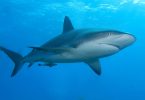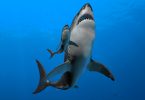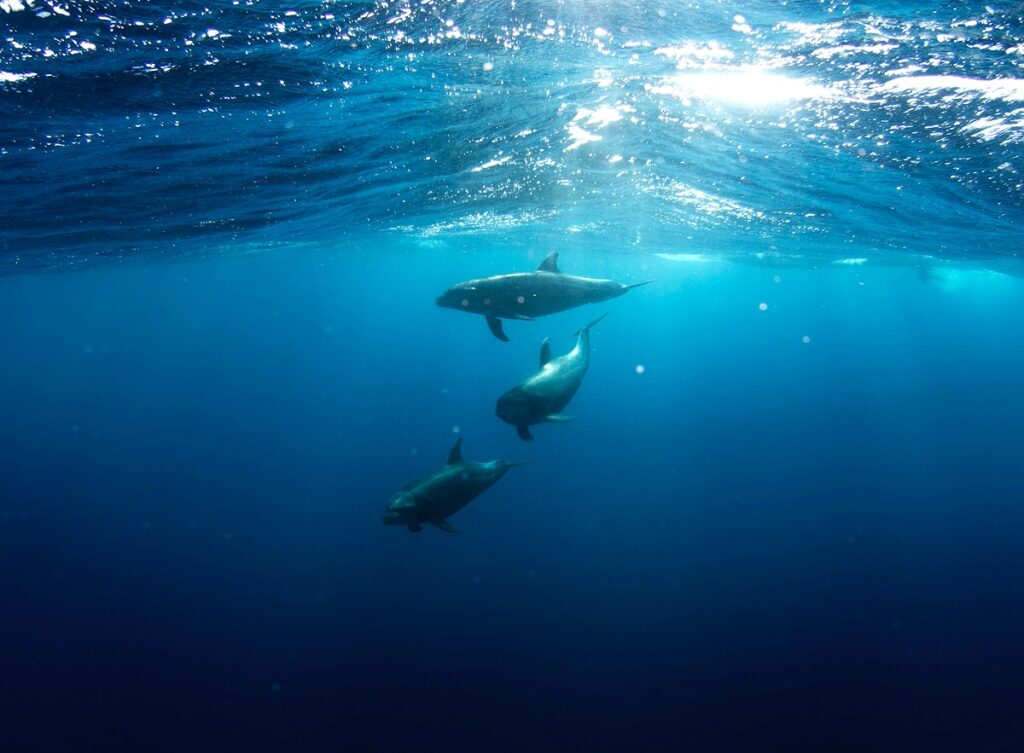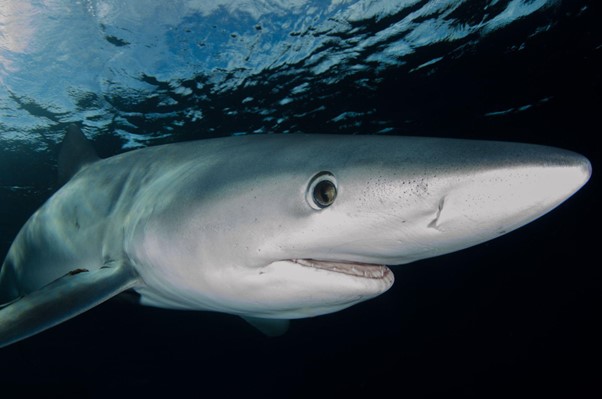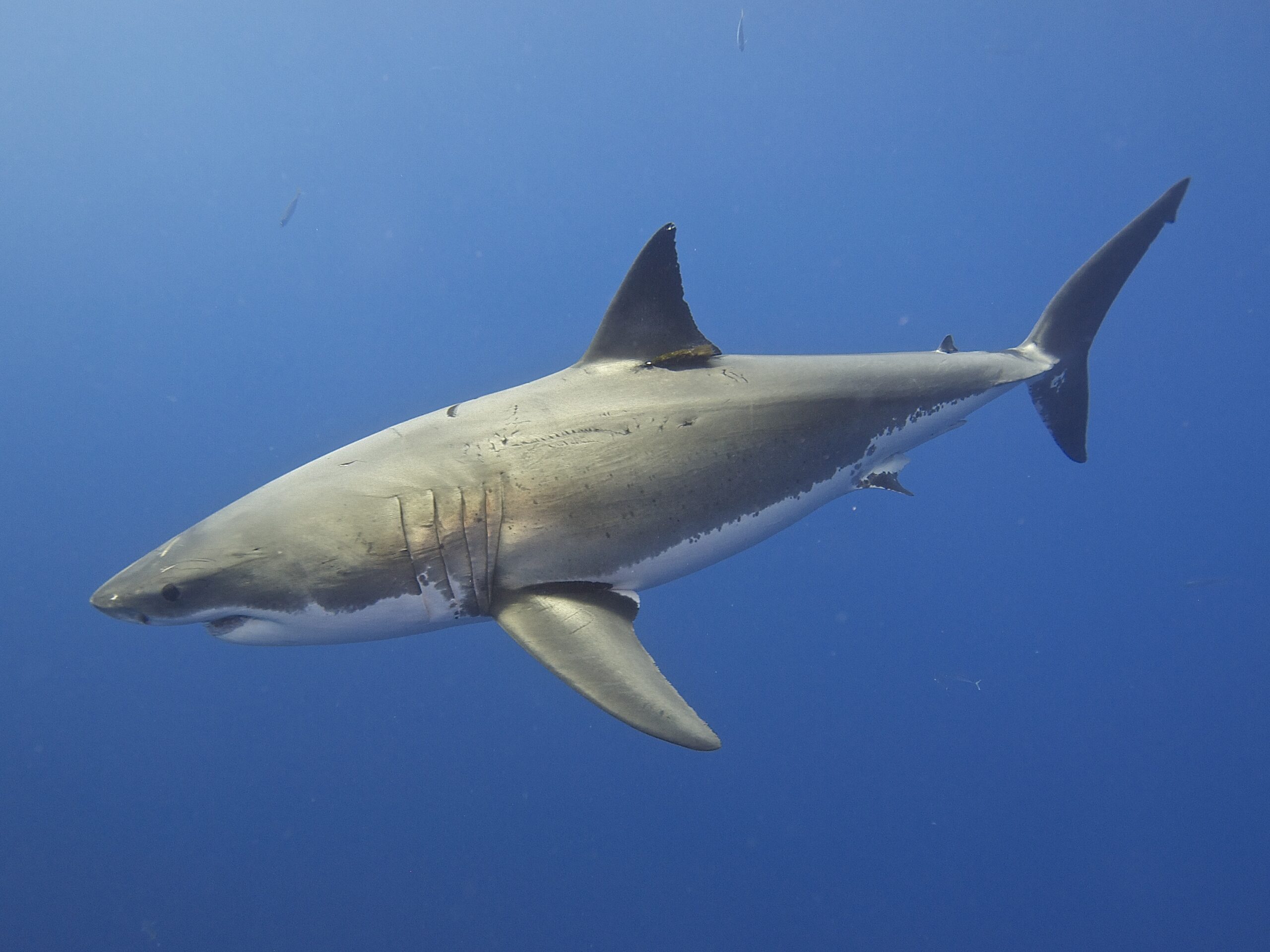Sharks have been dominating the world of oceans for ages and seem like they will continue to do so for many years to come. The top predators in the seas, no doubt it’s the brain of the sharks that make them capable, sharp, and clever at the same time; one wonders what makes the brain of the shark so unique.
Anatomy of a Shark Brain
Although shark brains have long been perceived as small and simple, sizes and degrees of complexity vary among shark species. To get a better understanding of it, let’s carry on with the great white shark brain, the largest of all predatory sharks in marine.
The adult great white shark grows to a maximum size of 20 feet, weighs approximately 6,600 pounds, and has a life expectancy of around 30 years. This species of creatures live in coastal surface waters of all major oceans and are uniquely adapted to their environment thanks to their six highly developed senses of smell, hearing, touch, taste, sight, and even electromagnetism. No doubt, they have the brain of a genius.

What Makes The Brain Of The Shark So Unique?
Here are some features of the shark brain that make it distinct from others.
- In comparison with the shark’s entire body size and mass, a great white shark’s brain is not particularly large or heavy, though it does have a Y shape and is approximately 60 centimeters long. Yet there is no direct correlation between the size of the brain and its functional ability.
- It is generally believed that the sharks that are bottom feeders or those that feed on plankton have smaller and lighter brains than those that hunt and approach prey with the intent to attack.
- When you compare the shark brain size with humans, a human brain is 16 centimeters long and typically weighs around 48 ounces.
- An image of the great white shark’s brain can be seen by looking at the individual components. The brain consists of millions of nerve cells, called neurons, with different regions defined as the hind-brain, midbrain, and forebrain, which comprise numerous specific sections too. Then there are irregular ventricles in the brain, which are filled with cerebrospinal fluid, which is responsible for regulating the brain’s chemical composition.
- There are irregular ventricles in the brain, which are filled with cerebrospinal fluid, which is responsible for regulating the brain’s chemical composition.
- Defining the parts of the brain, there is a frontal cortex in the shark brain that is responsible for fighting or movement. Since shark brains are not that big, it doesn’t have a lot of things at the front.
- The second part is referred to as the motor cortex. A small element that is mainly responsible for shark swimming.
- Then comes the sensory smell. Sharks have an exceptionally sensitive sense of smell; it takes nearly two-thirds of their brains, but of course, it performs other operations as well. In addition to detecting hunger, exhaustion, electromagnetic pulses, and so forth, the brain also processes messages regarding other physiological functions.
- Imagination is the only limit of a shark’s brain, so much so that it is capable of detecting and following a drop of blood over many miles of the ocean. That is why you are advised on beaches not to come near water if you are injured.
- Talking about their eyesight, they are no less than any other animal. But, sharks have color blindness. But that doesn’t stop them from targeting their prey. Some people think that sharks are deaf or blind, do read out the section here and find it for yourself.
Conclusion
Sharks’ brain is a complex as sharks are highly intelligent species, so their brain is highly developed. From body movement to sensory information, behavior, and coordination are all linked down to the brain. The brain’s incredible functioning is enough to amaze people, and it is one of the reasons the shark’s brain is so unique. Learn here if sharks have a 6th sense or not.


